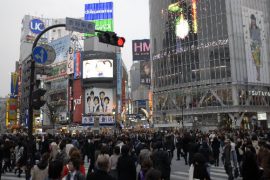The UK isn’t alone in a growing concern over the inequality in wages between the world’s richest and poorest people but it is certainly one of the countries with the fastest growing division between the richest and poorest 10%. According to figures released by the Organization for Economic Co-operation and Development (OECD) this week, the UK saw the fastest rate of inequality which peaked in the year 2000 but is once again on the rise.
In fact, the richest 1% of Britons has incomes which have doubled since the 1970’s whilst the poor are steadily getting poorer. In the UK, the average income for the top ten percentile at the beginning of the credit crunch in 2008 was £55k which was equivalent to 12 times more than workers in the bottom 10 percentile were earning.
What is even more worrisome is the fact that countries which have been traditionally egalitarian are also experiencing an ever widening gap between the rich and poor within the past few decades. Countries such as Denmark, Germany and Sweden are not immune to the growing gap between the rich and the poor. The OECD examined 22 countries, finding that inequality as radically grown in 17 of the 22.
Of all nations, the most inequality between the rich and the poor was evidenced in Turkey, Chile, the US and Mexico, although not necessarily ranked in that order. The report which was released in Paris is dispelling the assumption that economic growth will show a trickledown effect to those on the bottom of the economic stratum.
In the end, the OECD is blaming technology for rampant inequality as the poorest of workers have been literally forced to take on temporary work, part-time employment and of course are paid the lowest wages. The organisation also noted that self employed individuals are earning less. It is the recommendation of the OECD that world governments should make investments in creating higher quality jobs whilst working to improve skills amongst the poorest of workers.



